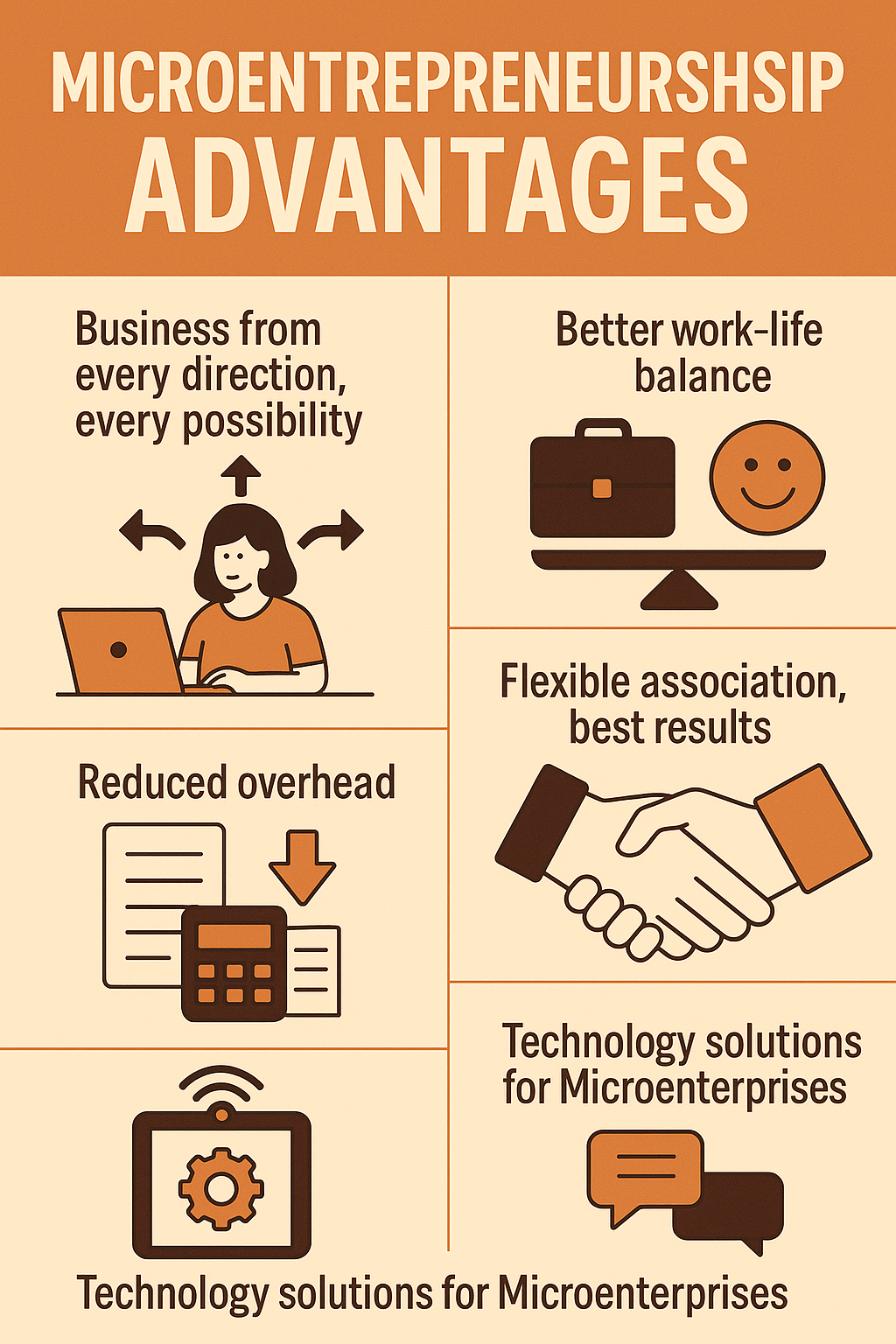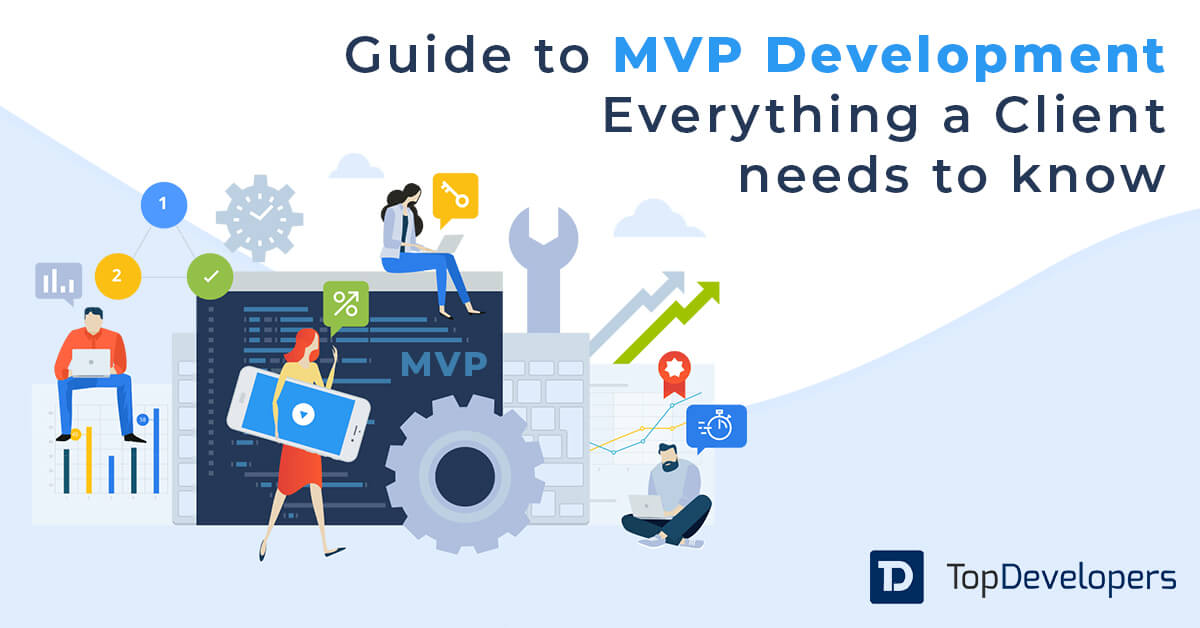
Though many may find it surprising, most want-to-be businesspeople are microentrepreneurs—that is, micropreneurs—not entrepreneurs. Simply put, individuals with excellent ideas begin their journey by taking small steps while working with limited resources, a restricted budget, and an adequate setup. For microentrepreneurs with fewer than 10 staff, they provide particular technological solutions.
The goods and services this company concept offers are likewise restricted as new entrepreneurs, particularly beginners in the industry, concentrate on mastering fewer dimensions than following a multidirectional but ambiguous strategy.
Often established with little money and usually run by one person or a small team, Microentrepreneurship is the development and running of extremely tiny enterprises. These microbusinesses may result in major personal and financial success as stepping stones towards more ambitious projects.
Table of Contents
Microentrepreneurship—the definition
The word is used to describe a company plan with either little or no staff. You are a microentrepreneur if you are the sole proprietor of everything, including starting a business, handling marketing and budget, and related concerns.
Microentrepreneurship is, practically, a concept for running a very tiny company. Therefore, such a concept helps the individual to balance operating a company they are passionate about with their lifestyle. Micropreneurs alone determine the fate of the company; no one else is responsible. You would be better doing it yourself, so outsourcing projects or hiring developers and professionals is out of your sight.
The small picture Microentrepreneurship
Running small firms is something that microentrepreneurs like, and they are less likely to grow very quickly. Actually, before considering increasing the scope of their goods or service offerings, such enterprising businesspeople would first establish themselves to the core.
They believe in “surety” rather than “venturing” into any field; they work from home and do not waste their money on large office space; and once again, their revenues flow into the same company. Having a property and listing it on Airbnb is the most basic microentrepreneur model. Perhaps you operate a respectable company as a travel blogger, teacher, or photographer.
Microentrepreneurship is different than Entrepreneurship
Microentrepreneurship is more targeted and cliché than the other concept, even if both concepts operate on their own sets of regulations and the owners enjoy working on flexible company models and boundless profit potential. Small in size, micropreneurs don’t strive higher right now.
Instead of squandering a lot of money, they depend on their capacity to manage official operations and pay a few staff members and would rather set up their own office at home or in a smaller space.
Unlike business owners who are always growing their company, a common microentrepreneurship notion would be operating the firm with few needs and workspace.
Microentrepreneurship might also arise from relentless efforts that have gone nowhere. It is clear that many company owners who lack the necessary momentum for their ideas finally become microentrepreneurs. Getting necessary money, workspace, and operational expertise might cause one to abandon the “long-term” company concept for a quick strategy with a low workforce and expenditures.
“We wanted to open up a storefront, and we launched a Kickstarter, but it failed. We tried working on getting a loan, and that did not work out either. We said, Fine, it’s going to take longer than we wanted, so we’re continuing to do the pop-ups.” – Gerard Klass, owner of Soul Bowl MN
Microentrepreneurship is not about farsightedness; rather, the small-business specialists are smart enough to act right now. Because they depend more on themselves than others, microentrepreneurs closely follow a to-do list and waste time on no other activities because the success of their company idea totally depends on personal commitment and productivity.
Key Features of Microentrepreneurship
- Low Initial Investment: Usually starting with little cash, micro-entrepreneurs lower financial risk and make entry more easily available.
- Flexibility and Autonomy: Owners have complete control over operations, work hours, and company direction, therefore enabling a tailored work-life balance.
- Low Overhead Costs: Microbusinesses keep expenditures under control by having fewer staff and fewer running demands.
- Niche Focus: Micro-entrepreneurs generally target certain market sectors, therefore allowing them to meet special consumer demands properly.
- Personal Fulfillment: Starting from nothing and building a firm from the ground up gives one a feeling of achievement and personal development.
Benefits of Microentrepreneurship
- Economic Impact: Particularly in underdeveloped or rural locations, microbusinesses provide local employment, increase community economies, and offer income sources.
- Creative Freedom: Owners can experiment with new ideas and pivot quickly in response to market trends.
- Closer Customer Relationships: Smaller scale allows for personalized service and stronger customer loyalty.
- Scalability: Many successful large businesses began as microenterprises, demonstrating the potential for growth and expansion.
Real-World Success Stories
- Homemade Bakeries: Originally selling cookies online, a baker gradually sends goods across the country.
- Fitness Ventures: One creates a thriving microbusiness generating notable money by hosting online fitness sessions from home.
- Food Trucks: Food trucks are turning a love of cooking into a profitable mobile food company delivering distinctive cuisine to an increasing clientele.
- Product Innovation: Entrepreneurs find market gaps—such as silicone wedding bands or specialized exercise equipment—then create profitable microbusinesses around these areas.
Challenges to Consider
- Financial Risk: Restricted resources might make it difficult to get funds or bounce back from financial losses.
- Time Commitment: Micro-entrepreneurs generally manage many responsibilities and must be very personally dedicated and adept at multitasking.
- Scaling Limitations: The necessity for hands-on management and resource limitations might cause a slowdown in growth.
Tips for Micro-Entrepreneurs
- Develop a Clear Business Plan: with methods for expansion, target market, and objectives.
- Focus on a Niche: provide a certain component that really shines out.
- Build a Support Network. For direction and encouragement, network with other business leaders and mentors.
- Prioritize Customer Service: Priority; great service will set your company apart and build loyalty.
- Stay Adaptable: As markets and trends change, always be learning and changing your strategy.
Microentrepreneurship Advantages
Bigger is not always better for microentrepreneurs. Their business plan works in the opposite way, as they approach their company differently. While a larger company could imply more income, microentrepreneurs argue that all of this comes with more responsibility, more resources, and, finally, greater complexity.
Still, sometimes the concept of microentrepreneurship could evolve into entrepreneurship, but it might also arrive much later. Not extending them in any direction, the notable advantages small-business experts target are personal development and increased income, utilizing the same goods and services.
Here are a few more advantages:
Business from every direction, every possibility
Microentrepreneurship is a unique concept, even if its goal is to draw enterprises from 360 directions, making it different, even if its business plan is based on a solo one with restricted items and services. Experts in identifying business prospects from many occurrences they come across are microentrepreneurs.
A travel vlogger may, for example, discover an opportunity to film the creation of a street food item, which is typical of the residents but unusual for viewers from outside.
For example, Instagrammer Ashish Shrivastav posted a video of a Surat, India, street food vendor creating a local crispy egg dish (named Egg Golgappa). Although the meal was well-known among the residents, it generated national attention among foodies all around. It brought him hundreds of millions of views in a relatively short amount of time.
Better work-life balance
Customized work-life balance provided. Microentrepreneurship is reportedly better and simpler than other business concepts. Being their employers, small company professionals choose their duties and responsibilities, including working hours, leisure time, and even client selection Too handle Microentrepreneurship is the ideal thing, as it allows the company to remain busy for certain hours and grow at the same time. Such freedom helps regulate mental and physical weight and finally lessens stress.
Reduced overhead
The smaller team size, services, and goods in microentrepreneurship help to significantly lower the overhead expenses. For every company, the costs of salaries and wages, office space rentals, supplies, and upkeep consume a significant portion of the budget; in the case of small firms, this is hardly noticeable.
Flexible association, best results
Usually, microentrepreneurs connect with functional consultants who are always available.
By means of innovative cooperation with other domain specialists from other niches or even businesses, one may assist them in carrying out their tasks without disturbing them to sustain the professional connection for a longer duration.
Through project-based cooperation, microentrepreneurs may choose the best products on the market without relying on them or being bound by them for their next initiatives.
Technology solutions for Microenterprises
Microentrepreneurs have a restricted budget; hence, they have little room to invest much in business IT solutions like CRM and ERP. For small companies with fewer than ten workers, the program with low features and micro-data management would be very helpful.
For microentrepreneurs, the IT solutions would be quite tailored. Actually, most very small business owners would choose free software solutions with limited capabilities and features. Not really concerned about data protection, such companies would be OK with local servers or even outside web and mobile app development companies for their commercial operations. Microentrepreneurs usually start by choosing readymade IT solutions for small enterprises as the first and best option.
If at all possible, hiring startup developers for tailored solutions is the best chance for microenterprise technology solutions. Since the microenterprises may usually be compared with some current companies in terms of the kind of company, technology, type of business,and business consulting, it would cost more and therefore can be avoided.
Microentrepreneurs might provide prototypes or samples of previously available software products. It would be advisable to contract freelancers to get the best rates by outsourcing IT solutions.
Microenterprise forecast
Microentrepreneurs do, in fact, confront various difficulties throughout the business verticals, including fierce rivalry from companies and MNCs, unresolved economic issues, and extremely erratic markets; yet, they are at least at less risk. To overcome all the barriers to reach a larger and global market, microentrepreneurs have begun to leverage the latest Startup Enterprise Tools and startup technology stacks. Giants like Amazon and Alibaba offer amazing expansion for microentrepreneurship concepts, independent of markets and areas.
Conversely, outsourcing IT solutions to independent contractors and tiny offshore startups has been somewhat common in recent years. Small-business owners working with remote developers under a win-back agreement will count more as they help to reach certain goals. Small-scale businesses all across the world are undergoing a lot with third-party apps and business platforms supporting them.
Conclusion
Microentrepreneurship gives people a road to turn little ideas into significant results. Microenterprises are essential players in local economies with minimal obstacles to entry, flexibility, and the possibility for both personal and financial development, acting as launching pads for more major businesses. Although the road may be difficult, micro-entrepreneurs who are creative, resilient, and focused on creating value will be very successful from modest beginnings.
FAQs
1. What is microentrepreneurship, and how does it differ from traditional entrepreneurship?
Microentrepreneurship refers to running a very small business, often with minimal employees and startup capital. Unlike traditional entrepreneurship, it typically focuses on local or niche markets and operates on a smaller scale.
2. What are the key benefits of starting a microenterprise?
Microentrepreneurship offers low startup costs, flexibility, independence, and the opportunity to scale over time. It empowers individuals to earn income, especially in underserved communities or emerging markets.
3. What are some examples of successful microentrepreneurship businesses?
Examples include freelance services (design, writing), home-based baking, local crafts, mobile repair shops, tutoring, handmade product sales, and small-scale e-commerce through platforms like Etsy or Shopify.
4. What skills are important for becoming a successful microentrepreneur?
Essential skills include basic financial literacy, marketing, digital presence, time management, customer service, and the ability to adapt quickly to market changes and feedback.
5. How can technology and AI support microentrepreneurs in growing their business?
Tools like Vitara.ai, Canva, social media platforms, and accounting software help microentrepreneurs automate tasks, build websites or apps, create marketing materials, and manage finances efficiently with limited resources.
 Avantika Shergil
| May 21, 2025
Avantika Shergil
| May 21, 2025
Avantika Shergil is a technology enthusiast and thought leader with deep expertise in software development and web technologies. With over 8 years of experience analyzing and evaluating cutting-edge digital solutions, Avantika has a knack for demystifying complex tech trends. Her insights into modern programming frameworks, system architecture, and web innovation have empowered businesses to make informed decisions in the ever-evolving tech landscape. Avantika is passionate about bridging the gap between technology and business strategy, helping businesses build customized software and website, and understand about different tools to leverage effectively for their ventures. Explore her work for a unique perspective on the future of digital innovation.






